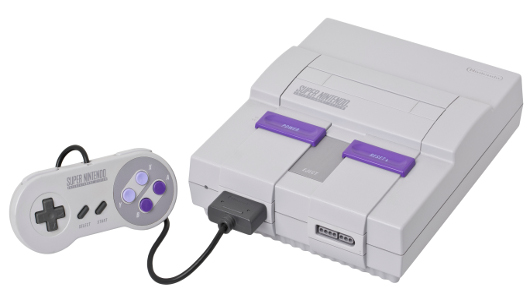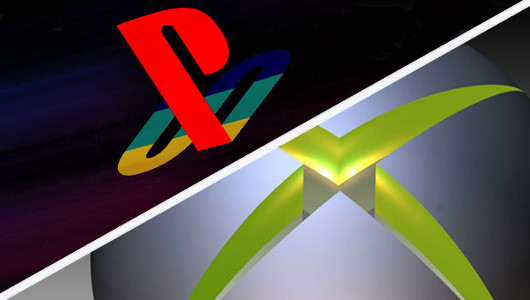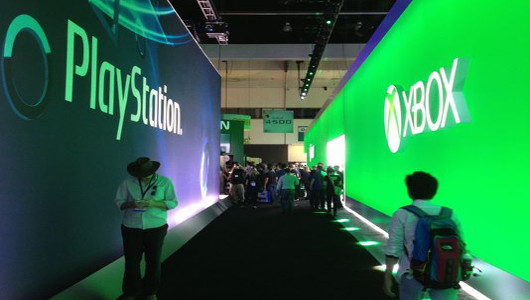The idea of whether or not extreme, binary opinions are good or bad for gaming has been on my mind for a while now. Perhaps a one word answer popped into your mind while reading the title of this piece, but the question is more complicated for me.
One of my older relatives recently posed a question that was able to sum up my favorite thing about the gaming industry. While discussing my writing, he asked, “If there is always something new, how can anything truly be new?” There is always a new game to be played and discussed, a fresh news story to pick apart. While I did not have a direct answer to this admittedly difficult question, it made me realize that the vast amount of discussion topics makes the gaming community so engaging. Unfortunately, this perpetually growing number of talking points often means an increase in disagreements (something the community as a whole is not necessarily great at handling).
As a whole, the gaming community is a wonderful, dynamic collection of individuals. Brought together by the desire to discuss our favourite hobby, we enjoy some of the richest, most varied discussions on the Internet. I want to make it perfectly clear – I adore the gaming community, and this article is not meant to dismiss its obvious merits. However, I would be lying to both myself and you, the reader, if I said the community was flawless.
One of the most unique and potentially troubling aspects of the gaming community is the prevalence of polar opinions. One cannot scroll through major gaming boards without seeing an argument as to why Game X is the greatest game of all time. Perhaps a AAA title comes out with a few major bugs, does that necessarily make it a “train wreck?” Gamers who grew up in the days of NES and SNES domination will often insist that the software on those systems blows today’s games out of the water. There tends to be a lack of middle ground in these insinuations, meaning that we see a great deal of “I’m right and you’re wrong.” Those who disagree with one’s polar opinions are often regarded as fools, no matter how logical their arguments may be.

I was born 13 days after the release of the Super Nintendo; does that mean I have no say in the debate over the greatest games of all time?
Why is it that gaming sees these extreme viewpoints more than almost every other source of entertainment? In looking through various movie forums, I was astounded at the lack of arguing taking place. When I look at sports articles, most extreme arguments are quickly confirmed or dismissed through the use of statistics and other advanced metrics. What is it about gaming that differs so greatly? This actually can be summed up in a single word: control.
With a few notable exceptions (I’m looking at you Steve Bartman), fans cannot directly control the outcome of a sporting event. While some think that sitting on a particular couch cushion will bring their team a win, victory is decided solely by the actions of the players. We can cheer, we can boo, but in the end we are simply spectators. Likewise, when one watches a film or television program, he or she is also taking a passive role. The actions of the characters exist in a vacuum, something viewers are unable to influence. Gaming is decidedly different, as the controller or keyboard empowers the player. We do not have to advance the story in any way if we do not want to. Link can sit in the same spot swinging his sword aimlessly; Joel can run straight into a wall for forty hours straight; Snake can complete his entire mission without ever standing up. It is up to us, as players, to decide the fate of our animated avatars, but this often leads us to think we control more than we actually do.
Often this sense of control seeps into our discussions and debates. Games empower us, causing us to feel strongly in one way or another. We even take extreme actions against games we think we are apathetic about. How many times has a game bored you to the point where you get into your car, drive to the store, and sell it? How can we be indifferent to games we forcibly remove from our lives all together? My favourite basketball team, the Boston Celtics, is one of the worst teams in the NBA. I feel no need to get rid of all of my green and white gear simply because I do not like the product they put out on the floor.
The power of control inserts itself into nearly every facet of our gaming lives, just look at the extreme language we use when discussing our hobby of choice. “Microsoft has to change the party system.” “I refuse to support Nintendo.” “The Titanfall servers are down for maintenance, this is unacceptable.” Even though we only control our characters, we often feel that we control the entire industry.
This certainly does not mean we are powerless, in fact, quite the contrary is true. Entertainment does not exist without the consumer. Fans of every form of entertainment do have a certain level of control; we are certainly not powerless. If your favourite sports team is building a product you do not approve of, do not buy tickets to see them. If you think a movie looks bad, spend your money elsewhere. If a game does not suit your interests, vote with your wallet. The gaming industry revolves on our dollars, so in a sense we are in charge of what happens, but not at the level the community often thinks. We have no more power than any other type of consumer, yet our language, opinions, and discussions seem to suggest we think otherwise.

The only true control we have over the gaming industry is through consumption, yet we feel we have more.
Extreme opinions can absolutely be a good thing, do not get me wrong. Although they may not realize it, extreme fans of Sony or Microsoft are actually marketing their console of choice. Being that the Xbox One and PlayStation 4 are largely similar consoles, first-party exclusive titles will likely determine the winner of this generation. “Fanboys” and “fangirls” are likely to bring up the exclusive titles on their console of choice in heated arguments. While some say Dark Souls II is as difficult as it gets, I think finding an inFAMOUS: Second Son thread on a major message board that does not include a mention of Titanfall is equally difficult. These “fanboy” debates are viral marketing at its best, often more effective than a TV commercial in getting the name of an upcoming title out in the open. Don’t believe me? I missed the initial Sunset Overdrive trailer when it was revealed, but I’ve seen it roughly ten times now thanks to heated console debate threads.
So yes, these extreme opinions can indirectly inflate sales numbers, which is obviously phenomenal for the gaming industry. Passion is rewarding, fun, and exciting. I would not be writing this article if I was not passionate about gaming or the written word. However, there is a point where passion can go too far, which we see all too often in the gaming community.
With so much constantly happening in the gaming industry, the potential for differing viewpoints is fascinating. Whereas there is essentially no debate as to who the greatest basketball player of all time is (sorry Bill Russell, Michael Jordan takes the cake there), the greatest game of all time can be debated ad nauseam. For some it is The Legend of Zelda: Ocarina of Time, for me, it is The Last of Us. Nobody is ever truly wrong because games affect people in very different ways. LittleBigPlanet: Vita had more of an emotional impact on me than Journey, which is possibly my most controversial opinion (outside of Kirby 64: The Crystal Shards being a perfect game, of course). Everyone is allowed to have strange opinions like these; they make the gaming community vibrant and unique. However, extreme viewpoints become hugely problematic when they are taken as fact rather than opinion.
The sense of control we get from video games is sometimes a dangerous thing, sometimes leading us to believe our individual experience was the definitive experience. Heated, hateful debates about gaming are commonplace on the internet. People are insulted, feelings are hurt, and entirely valid views are dismissed. Games can empower us to a fault, leading us to be unnecessarily harsh. I thought the ending of Thief was the worst ending in the history of video games, but does this give me the right to insult someone who was incredibly moved by it? Obviously not, but this is often the logic we see employed by members of the gaming community.
As an Ohio State alumnus, I have an intense dislike for the University of Michigan. While I may joke about the weight of Michigan’s football coach, or make quips about the intelligence of Michigan’s students, I know that I have more in common with them than I do with fans of any other opposing school. We are united through our rivalry, through feelings towards the other than are almost entirely identical. Sony fans and Microsoft fans often have trouble seeing that their similarities are greater than their differences. Harsh, hateful words do nothing but bring down both communities. Both sides use their respective consoles for hours on end, playing games that are largely similar. Rather than embrace these similarities, they focus on one or two differences, bombarding one another with hurtful words behind the anonymity of a keyboard. These harsh arguments can make the community seem unappealing for potential members, making everyone lose in the end. Perhaps the gaming community can learn something from sports rivalries; it is okay to be a fan of a particular side, but taking things too far can hurt both sides.
So are extreme opinions bad for the gaming industry? Yes and no. The diversity of gaming viewpoints is truly beautiful. It makes the community special, as everyone is able to be correct in some way. No other form of entertainment media has the potential to be as diverse as this one, but this is absolutely a double-edged sword. These numerous unique opinions can just as easily start numerous unique arguments. As gaming continues to grow, we simply have to be mindful that every opinion is valid, no matter how polarizing or bizarre.
Tags: AAA Games, Arguments, Community, Console Exclusives, Exclusives, Extreme viewpoints, Fanboy, Fangirl, film, Gaming, Industry, LittleBigPlanet, movies, NES, Nintendo, Opinion, OSU, PlayStation 3, PlayStation 4, PS3, PS4, Rivalries, SNES, Sports, The Last of Us, Vita, Wallet, Xbox 360, Xbox One, Zelda







